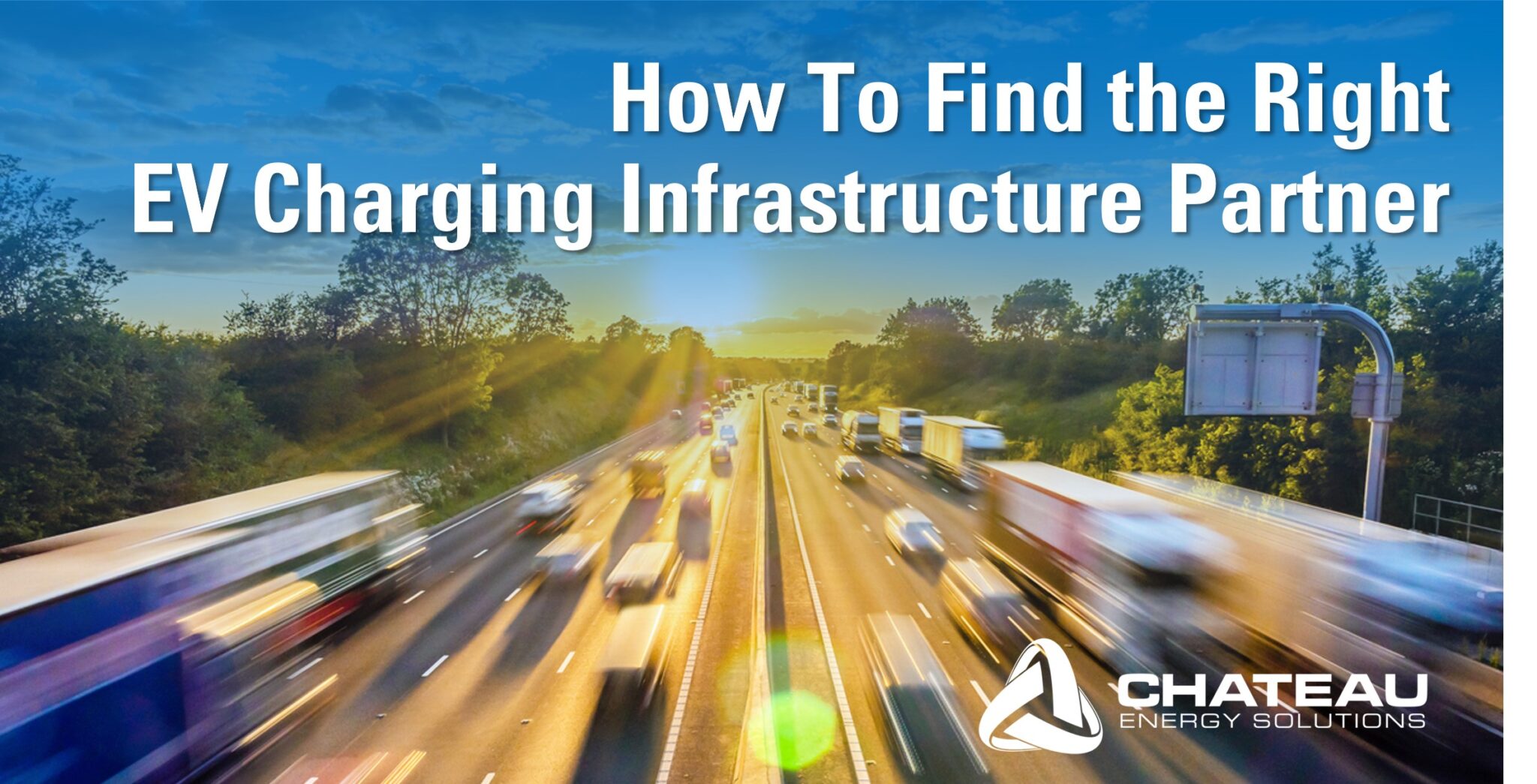
 Posted by Mason Lassiter
Posted by Mason Lassiter In today’s rapidly evolving landscape of electric mobility, finding the right partner for your electric vehicle (EV) charging infrastructure is critical, particularly for commercial fleets. As the demand for sustainable transportation solutions continues to surge, and the regulations on diesel trucks become more stringent, the importance of reliable and efficient charging infrastructure becomes paramount.
In this blog, the crucial aspects of identifying the ideal EV charging infrastructure partner for commercial fleets are examined. This exploration will cover the essential factors and strategies these partners need to possess including experience, engineering, construction, utility relations, and program management, to empower your business in effectively electrifying your fleet.
When selecting an EV charging infrastructure partner for your commercial electric fleet, it’s crucial to consider these six areas:
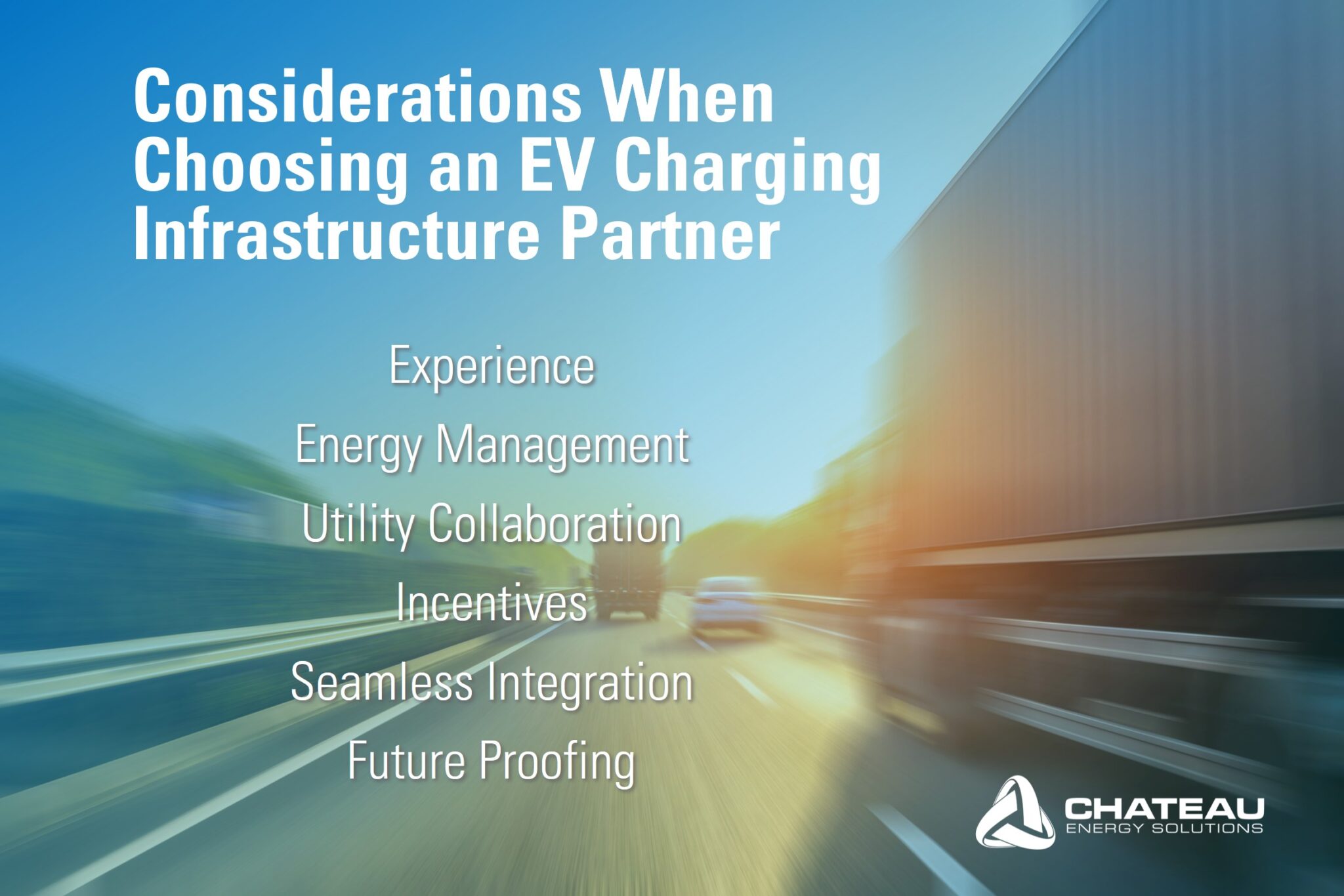
When selecting a partner for your EV charging infrastructure, prioritizing reputation and experience is key. Look for a provider with a proven track record in the industry, demonstrating their ability to deliver reliable solutions and navigate complex challenges. Opting for a partner that offers turnkey or end-to-end EV charging solutions ensures seamless integration and comprehensive support throughout the process.
A crucial aspect to consider is the presence of a dedicated program management team within the partner organization. Unlike contractors, program management teams oversee the entire project lifecycle, coordinating efforts across various stakeholders and ensuring adherence to timelines and budget constraints. Also, unlike a project manager, a program manager will consider how this deployment will affect your organization as a whole – from an energy usage perspective to how it may affect your existing facilities. They should be familiar with the local laws and jurisdictions for codes, compliance standards, and safety. Working with a company that has an experienced and knowledgeable program management team can significantly reduce the number of setbacks and delays.
Additionally, expertise in charging equipment selection, design principles, adherence to local codes, permit acquisition, and installation and construction practices are critical factors. Partnering with a company that prioritizes safety protocols and adherence to industry regulations is crucial for ensuring a holistic approach to safety throughout the project lifecycle, leading to improved efficiency and approval.
An experienced EV charging infrastructure partner will assist in strategically analyzing your specific use case. They will consider factors such as the types of vehicles you’ll be using, their travel patterns, and the level of charging required to meet your needs efficiently. Other important factors are the number of chargers needed and their optimal locations which can affect future proofing.
By planning and implementing load management strategies, such as optimizing charging schedules and distribution, you can effectively minimize your load and keep operational costs at bay. Prioritizing load management not only enhances efficiency but also contributes to maintaining competitive pricing in the long run. It’s imperative to conduct a thorough evaluation of your EV charging requirements and explore alternative solutions to optimize infrastructure deployment.
Charging infrastructure deployment almost always requires collaboration with utilities so it is important the company you work with has the capability and experience to do so. Collaboration with the utility facilitates smooth interactions regarding grid integration, tariff structures, and other utility-related considerations.
Any experienced commercial fleet electric vehicle charging infrastructure partner will tell you that it’s crucial to initiate communication early with a utility, especially once the deployment location or locations are determined. Your partner will look at the power supply, transmission, and delivery from your utility to understand what power is available in that area. They will determine lead times for obtaining power connections and explore any potential make-ready incentives the utility might be offering.
Effective experience and coordination with utilities can significantly streamline the process of deploying EV charging infrastructure.
The electric truck market is in the early adopter stage of the technology adoption curve. Depending on the gross vehicle weight rating (GVWR) of the vehicle, commercial electric vehicles may have a higher initial cost than their diesel counterparts. In order to improve the total cost of ownership for fleets, the Federal government, states, cities, counties, and utilities have developed incentive programs that support the deployment of commercial electric vehicles and charging infrastructure. On the vehicle side, the Inflation Reduction Act (IRA) established a Commercial Clean Vehicle Credit of up to $40,000 per vehicle. The IRA also provides funding through competitive grant programs with vehicle acquisition provisions, including EPA Clean Ports Program.
Funding for commercial charging infrastructure development is currently rolling out in a variety of forms. The IRA provides resources both indirectly, through programs like the EPA Clean Ports Program, and directly, through tax incentives like the Alternative Fuel Vehicle Refueling Property Credit (AFVRP), which provides credit to businesses that install qualified vehicle refueling and recharging property. States are providing funding through competitive grant programs as well. Focusing on innovative and cost-effective deployment methods, states like California have dispersed millions of dollars for charging infrastructure development.
Electric utilities have also stepped up to the plate. Utility ‘Make Ready’ programs provide funding for charging infrastructure projects all the way up to the charger, or electric vehicle supply equipment (EVSE). These programs allow EV customers to avoid the most expensive charging infrastructure activity, bringing power from the utility distribution grid to the charger on site. However, these ‘Make Ready’ programs come with strings attached, including power costs and data reporting requirements that contribute to the operating costs of the charger. Commercial EV customers should consult with a trusted charging infrastructure partner to determine which dollars to take, and which to steer away from.
When considering the impact of utility rates for EV charging infrastructure, various factors come into play. In certain regions like California, incentive programs are in place that reward off-peak charging, leveraging surplus renewable energy during specific times. Charging during off-peak hours, particularly at night, can lead to significant rewards or savings. Additionally, some utilities offer negotiable EV rates, providing opportunities for customized pricing structures tailored to individual needs. In some states, there are grants and incentives on materials for charging infrastructure. Santa Barbara County, in California, offers a clean air infrastructure grant ranging from $10,000 to $250,000 for infrastructure projects in disadvantaged communities. Understanding the dynamics of these incentive programs and rate structures is crucial for optimizing cost-effectiveness and maximizing benefits for both the fleet owners and utility providers.
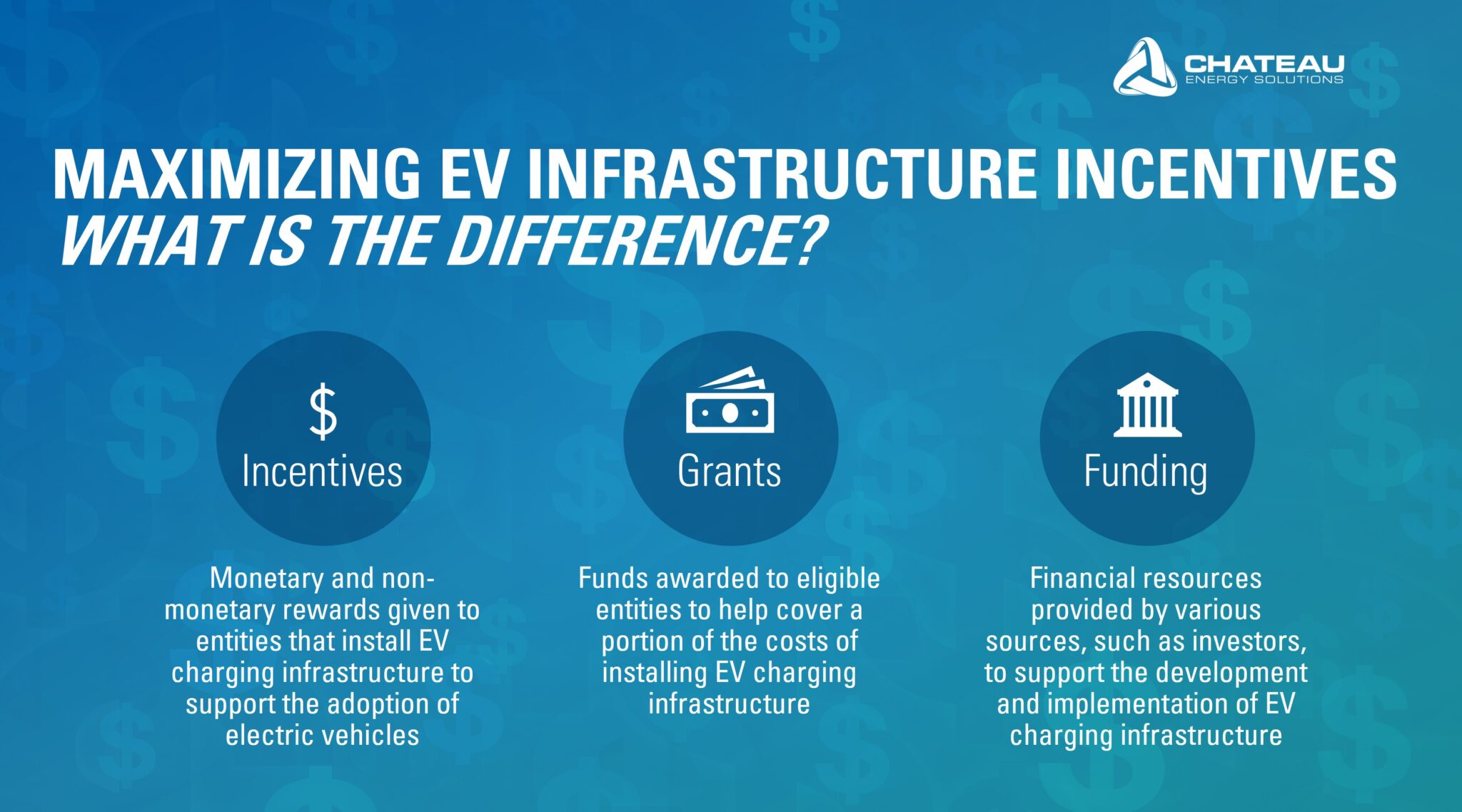
The expertise and experience of a company’s engineering staff can play a major role in the success and ease of your infrastructure installation. It is important to interview the team of the company you plan to partner with. Focus on individuals who have completed these types of projects or similar projects before. The partnering team must adhere to National Electrical Code (NEC) guidelines to assure safety and compliance. Collaborating closely with your company, your partner should work diligently to meet safety requirements and ensure the seamless integration of EV charging infrastructure into your operations. Investing in an experienced engineering team is key to achieving a successful and sustainable EV charging solution.
Similar to the engineering team, it is important that the program management and construction team have experience with this type of work as well. Ask for case studies or examples of previous work they have done that is similar or the same as your company’s infrastructure needs. An experienced construction team will have the know-how to navigate common pitfalls typically encountered by beginners, reducing the likelihood of repeating mistakes. Through practice and previous projects, they’ve gained invaluable insights into dealing with authorities for project execution and understanding regulatory compliance and construction protocols. Spend your time now finding a partner with experienced engineering, construction, and program management teams to ensure seamless project execution.
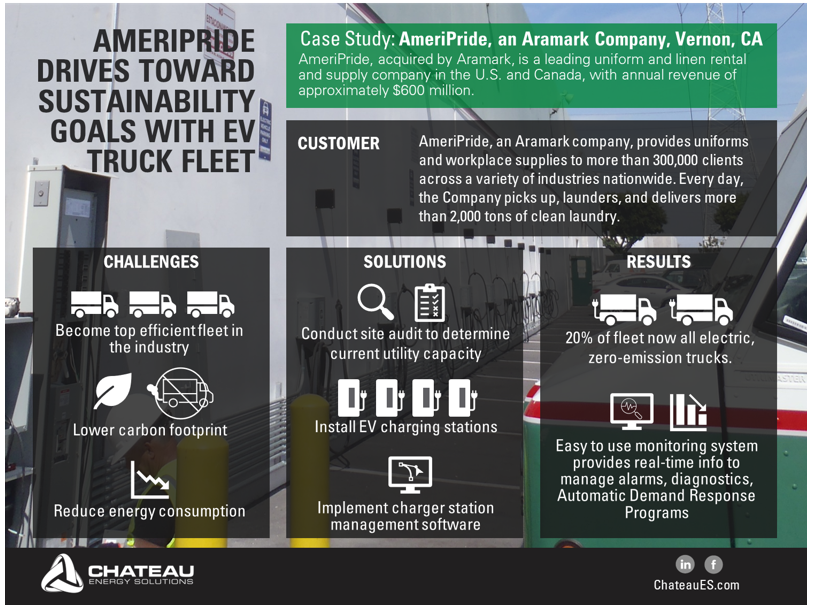
It is important to proactively plan for your future EV charging needs. A main goal to keep in mind when you are future-proofing should be to only have to tear the ground up once. To do this, you need to create a strategic, attainable long-term infrastructure plan. Analyzing your specific use-case and anticipating vehicle growth over the next 5-10 years enables you to size wire, switchgear, and potentially even utility transformers accordingly. While utilities may not always agree to these proactive measures, it’s worthwhile for your partner to advocate for them during negotiations.
Planning ahead for fleet deployment ensures scalability and adaptability to evolving needs, ultimately enhancing the longevity and effectiveness of your charging infrastructure investment. Effective future-proofing strategies can minimize disruptions in the short and long term and maximize efficiency at your site.
Selecting the right EV charging infrastructure company is crucial for the success of your EV project. A company with an experienced program management, engineering, and construction team, previous infrastructure project experience, and a thorough understanding of utility collaboration and local regulations, will ensure smooth project execution and mitigate potential hurdles. It is important that the team is familiar with the current incentives, grants, and funding programs for EV infrastructure at a national level as well as those local to the location of your project.
At the very start of this journey, you should consult with your partner about your specific needs and formulate a long-term plan that allows future charging capacity and vehicle growth. A sign of superior commercial EV charging infrastructure development is a consideration and anticipation of future demand for charging that will reduce additional project costs down the road. Spend the time now finding a suitable charging infrastructure partner to make your transition to a commercial electric fleet seamless and successful.
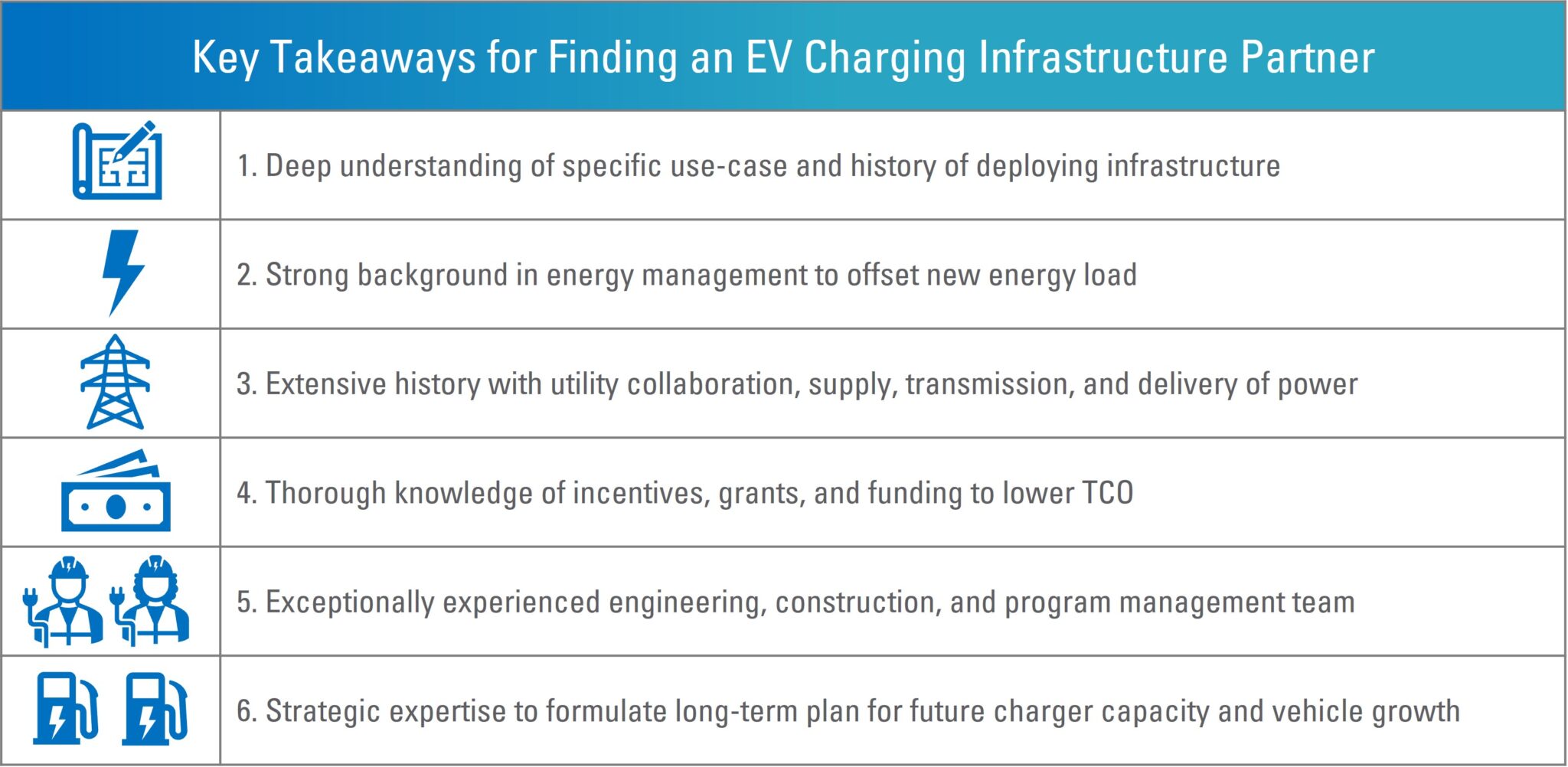
If you are looking for an experienced EV charging infrastructure partner to help your organization transition to an electric fleet, Chateau Energy is here to assist you. Our team of seasoned experts specializes in designing tailored charging solutions for clients across the nation. Proper EV charging deployment requires meticulous planning and insightful expertise. Contact us to discover how we can help in maximizing the potential of your commercial electric fleet.
Chateau Energy Solutions Making Energy an Asset®
Ready to get started on the path to energy efficiency and sustainability?